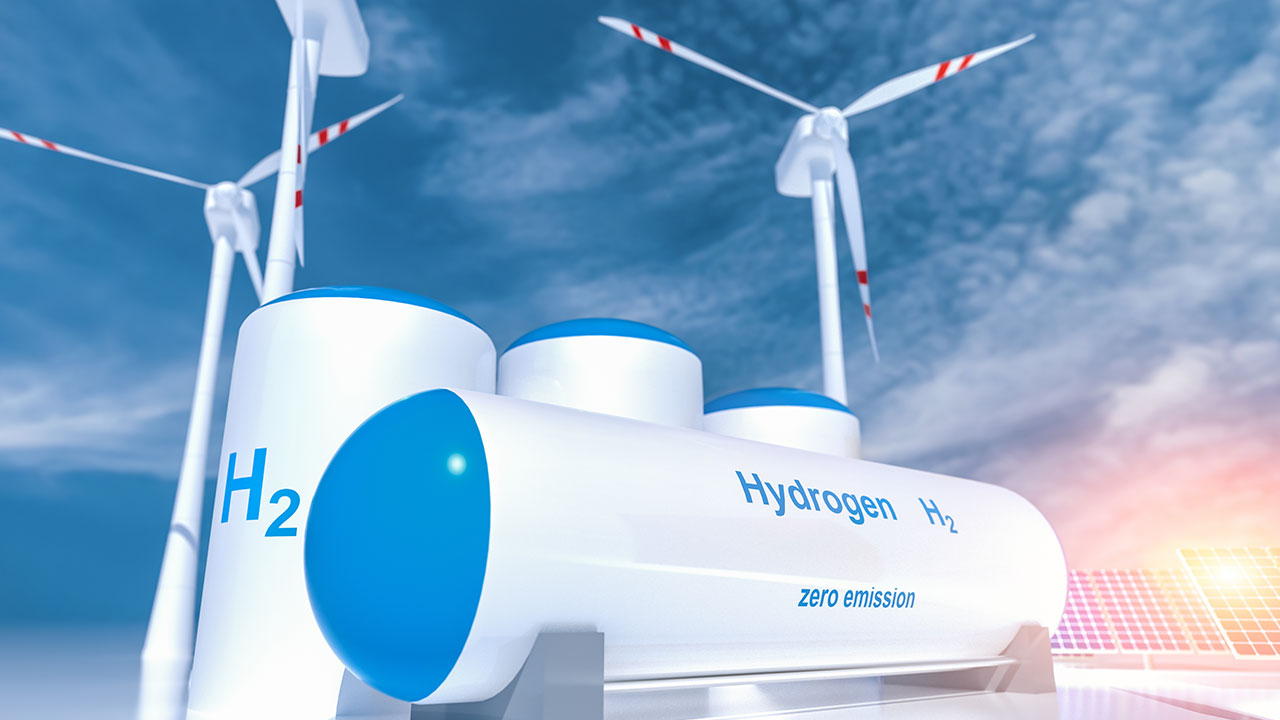
Opportunities and risks of hydrogen partnerships and technologies in developing countries
- Project team:
Reinhard Grünwald (Project Manager), Katrin Gerlinger
- Thematic area:
- Topic initiative:
Committee on Economic Cooperation and Development and Committee on Economic Affairs and Energy
- Analytical approach:
TA project
- Startdate:
2021
- Enddate:
2025
sprungmarken_marker_1745
Background and central aspects of the topic
Hydrogen produced on the basis of renewable energies (RE) – so-called green hydrogen – is considered to be a key technology for achieving the objective of climate neutrality by 2050. From today's perspective, it will be impossible to cover the expected demand for hydrogen as an energy carrier or basic material for industrial processes by the quantities produced in Germany or the EU alone. This is why, for the time being, Germany will depend on imports of green hydrogen (or derived products). Suitable production sites can be found particularly in regions with favourable geographical and climatic conditions for RE production – many of them in developing countries (e. g. photovoltaics and wind energy in North Africa). Thus, the topic of hydrogen partnerships with developing countries is of high political and social relevance.
Germany and the EU have set themselves the objective of achieving climate neutrality by 2050. Moving away from fossil fuels and resources is a key prerequisite for achieving this objective. Hydrogen has a key role to play here, as it can be produced from renewably generated electricity via electrolysis and can be used flexibly in many areas (e. g. as fuel and as basic material for industrial processes). With regard to its function as a storage medium, hydrogen can balance fluctuations in electricity generation from renewable energy sources. Moreover, it can serve as a link for sector coupling (electricity-heat-transport).
As from today’s perspective, the quantities required for large-scale hydrogen use in Germany cannot be produced exclusively domestically or in the EU, the option of importing sus-tainably produced hydrogen from other countries is being discussed. Thus, for example, many developing countries offer good conditions for the cost-effective generation of wind and solar energy for hydrogen production.
Hydrogen partnerships with developing countries can open up great opportunities at the local level for their economic development. The export earnings for hydrogen can generate funds to build infrastructure in the partner country and stimulate the local economy. Moreover, high-quality jobs can be created in these countries.
Depending on the local situation, however, adverse environmental, socio-economic or political effects must also be considered. For example, the export of hydrogen might delay the often urgently needed expansion and climate-neutral conversion of the domestic energy industry in the partner country. Furthermore, it might have negative effects on the local availability of resources (e. g. drinking water). In many previous analyses and strategies with regard to a hydrogen economy, only little attention has been paid to the concerns of the partner countries.
At the same time, from a German perspective, it is also important to address certain opportunities and risks that hydrogen partnerships with developing countries might entail. These include, in particular, issues relating to the reliability, security and resilience of the supply of energy or essential basic materials. Ways are to be found to avoid dependencies in supply relationships, for example on states with unstable political or social structures or with deficits regarding democracy and human rights.
Objectives and approach
The objective of the TA project is to identify and discuss the conditions for implementation as well as possible implications, opportunities and risks of a hydrogen infrastructure along the entire utilisation chain in potential partner countries. Technological approaches, criteria and implementation possibilities for the design of corresponding projects are to be investigated, which aim at simultaneously providing the greatest possible developmental and environmental benefits.
Project progress
In the first phase of the TAB project, the technologies involved in the production and supply of green hydrogen and its downstream products were characterised. This included renewable energy generation, particularly wind, photovoltaic and hydropower, as well as geothermal energy, and hydrogen production using electrolysers, which could be combined with seawater desalination. It also included the downstream products, such as PtX fuels, and the necessary local storage and transport infrastructure. Additionally, a framework comprising environmental, economic, and social criteria was developed to evaluate the potential opportunities and risks associated with hydrogen projects in developing countries.
The second phase of the TAB project involved holding stakeholder workshops in three selected regions:
North Africa (Algeria and Tunisia), Central Africa (Nigeria) and Central Asia (Kazakhstan and Uzbekistan). The conditions for implementing industrial projects for green hydrogen production and associated economic, environmental and social opportunities and risks were analysed and evaluated in depth using concrete country case studies.
Based on these findings, options for action will be derived, particularly with regard to German development cooperation and economic promotion. These options for action aim to increase the economic, ecological and social potential of hydrogen partnerships for both the partner countries and Germany, while minimising associated risks.
Based on the results of the May 2023 workshop discussion and further research, options for action are currently being derived during the preparation of the report, particularly with regard to German development cooperation and economic promotion. These options aim to maximise the economic, ecological and social potential of hydrogen partnerships for both the partner countries and Germany, while minimising the associated risks. The final report is expected to be submitted to the new TA rapporteurs for approval in Q3 2025.
Event
In a workshop discussion on 25 May 2023 (only in German), interim results of the TA project will be presented and discussed with MPs and stakeholders.
